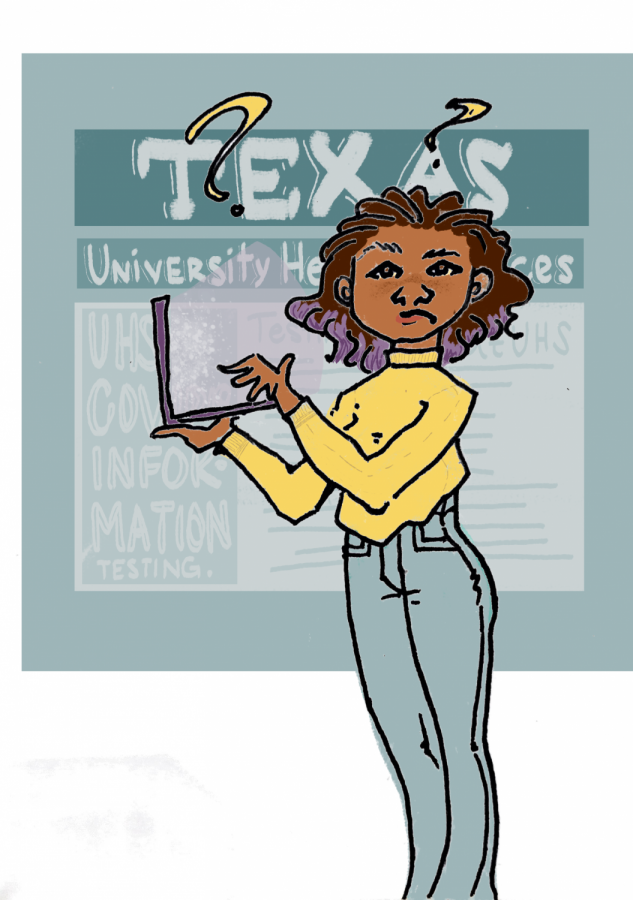UT must provide COVID-19 testing over the weekends
September 19, 2021
As a freshman at UT, there are many things that I am still getting adjusted to: an increased workload, making new friends and most importantly –– the “post” COVID-19 world.
In this new era, we are constantly confronted with unprecedented questions, a lot of which we are unable to answer. These questions vary from, “Will my vaccine protect me?” to “How safe is it to go to in-person classes?” Amid all of this uncertainty, one aspect has stayed consistently credible –– the accuracy and effectiveness of COVID-19 tests.
Many locations on campus such as the Student Services Building and the Union provide free COVID-19 testing throughout the week. Their hours of operation range from 9 a.m. to 3 p.m. except for testing at the SSB, which closes at 5:30 p.m. While these resources are helpful, there is one catch: none of these locations administer tests over the weekend.
It is critical to the safety of students and staff that UT provides free testing services over the weekend.
Testing is most effective if it remains universally accessible. By not administering tests over the weekend, we run into more issues concerning the virus.
For example, if a student goes to an event Thursday or Friday night and manages to contract the virus and develop symptoms, they might be unable to get a rapid test until Monday morning. This could produce a disastrous domino effect as other students may unknowingly get infected.
Ellie Stephan, Plan II and business freshman, recounted a time where weekend testing would have prevented mass anxiety.
“When I was diagnosed with COVID, it was at 6 p.m. on a Friday, so everyone that I had contact with had a lot of trouble getting tested,” Stephan said. “There was a lot of anxiety surrounding that situation, because some people had to go to class or spend their whole weekend not knowing if they had COVID-19 or not.”
While there is testing available over the weekends at third-party locations, these spots are difficult to sign up for and aren’t always free. Pharmacies like CVS don’t always have testing slots readily available at many of their locations. If you want to secure a spot, you often have to sign up a week in advance. By that time, if you contract the virus and choose not to isolate, you could have potentially spread it to considerable masses.
Jessica Klima, director of the Proactive Community Testing Program at the University, provided insight on whether UT will be providing testing on the weekends.
“There have been times in the past when we have offered testing over the weekend to accommodate an increase in demand or other special circumstances, but at this time, there are no plans to do so moving forward,” Klima said through an email correspondence with Susan Hochman, the associate director for assessment, communications, and health information technology .
“Testing for asymptomatic individuals is recommended twice a week with a rapid antigen test or once a week with a PCR test, and this can be accomplished through current operating hours,” Klima said. “If a student becomes symptomatic over the weekend, they should isolate [themselves] to prevent spreading the virus to others and get tested as soon as possible.”
The current measures that UT has in place, while thoughtful, are not enough to prevent the spread of the virus. The University must take action to make testing more accessible and encourage students and faculty to get tested frequently.
Quadri is a Plan II and business freshman from Austin, Texas.



